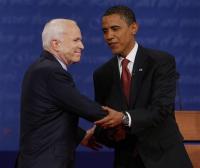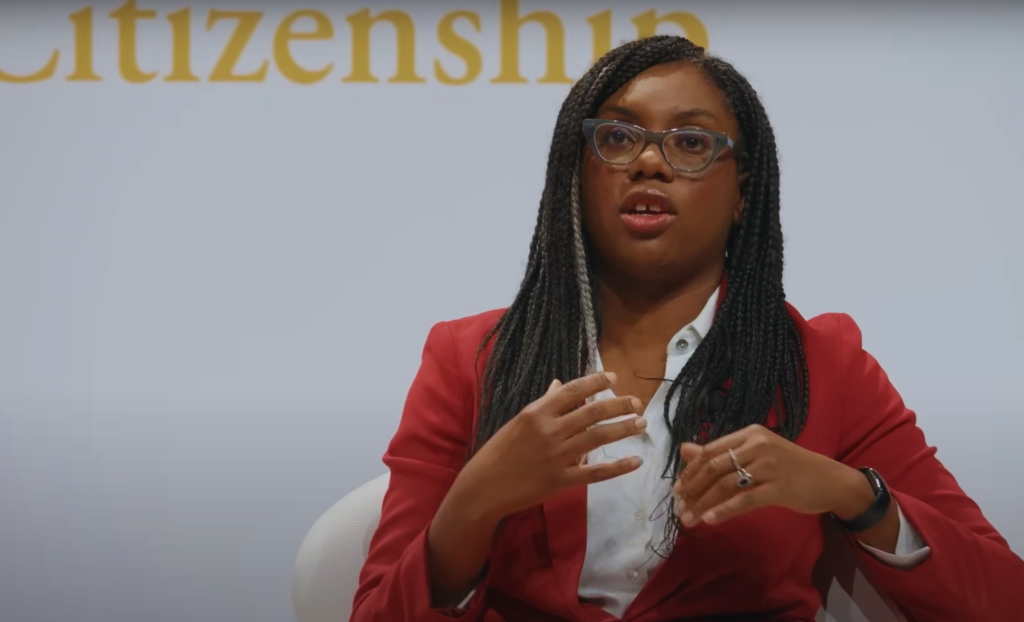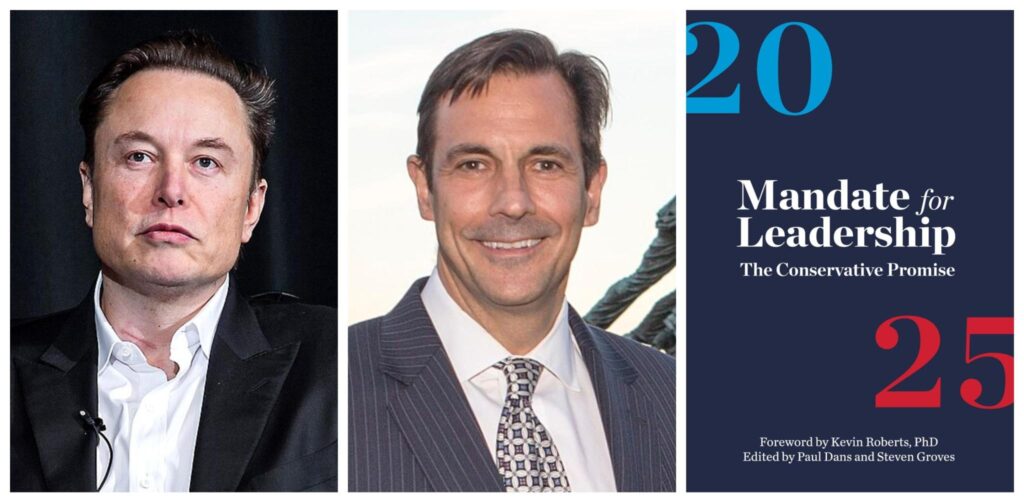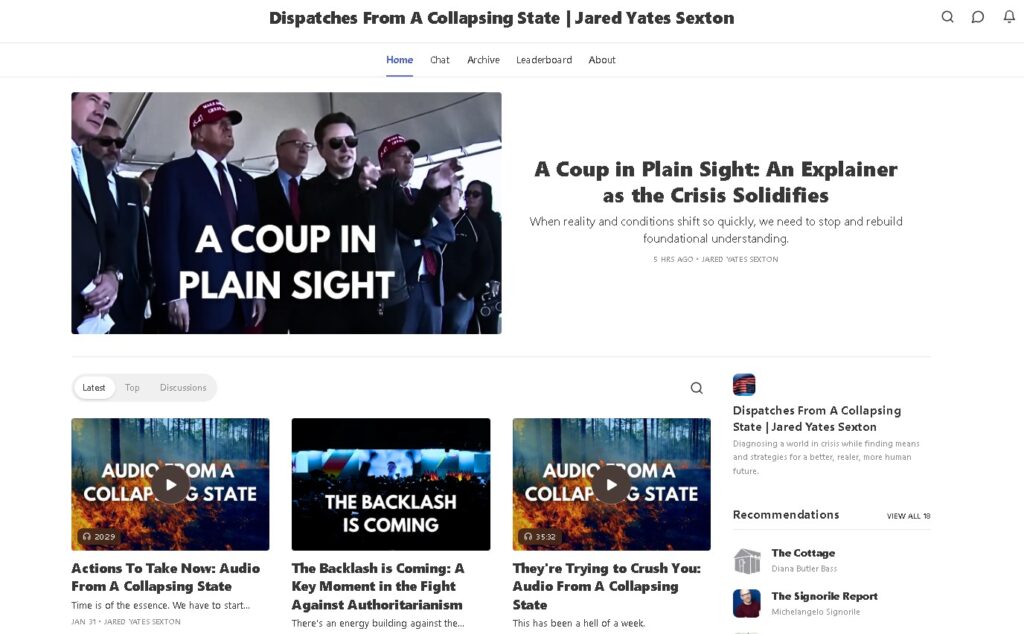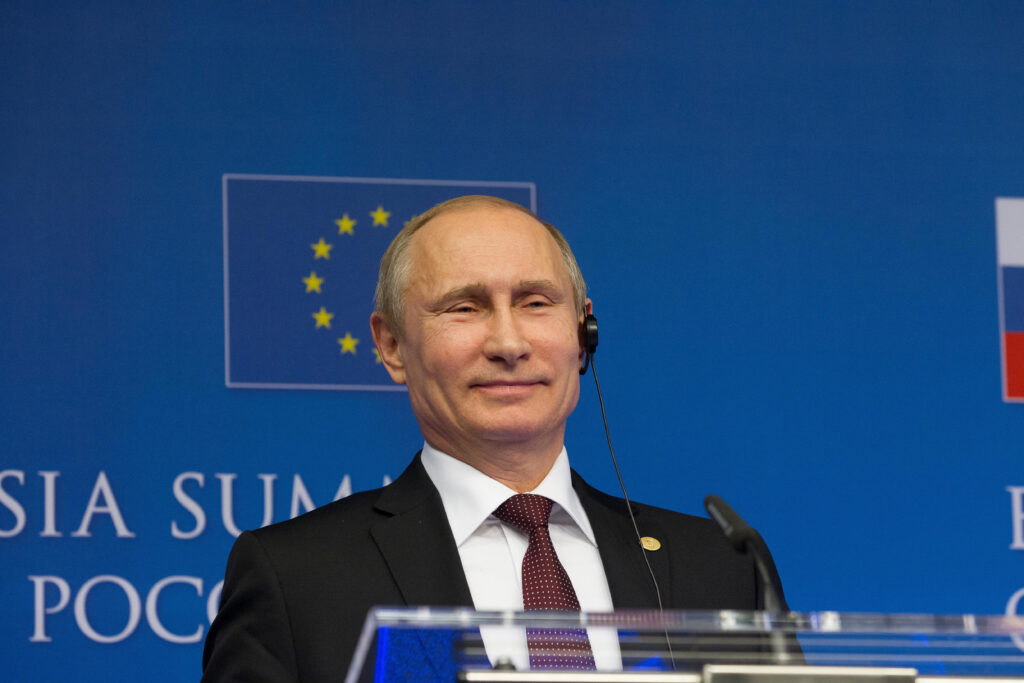All eyes were fixed on Oxford, Mississippi, this past Friday where, after a week of tumultuous activity on Wall Street and Capitol Hill, the University of Mississippi was set to host the first presidential debate between Senators Barack Obama and John McCain. The debate had been in limbo until that morning after McCain abruptly decided to suspend his campaign on Wednesday in order to return to Washington and take part in the discussions over Treasury Secretary Hank Paulson’s $700 billion bailout plan – this despite his lacking a leadership position on the Senate Finance Committee and professing to have a rudimentary knowledge of economics, at best.
Ironically, a tentative deal that had been hammered out by Senate and House leaders collapsed soon after his arrival. One humiliating volte-face later – with a bipartisan consensus on the plan still nowhere in sight – and the debate was back on.
Given the ill winds buffeting the nation’s finances, the debate’s moderator, PBS anchor Jim Lehrer, kicked things off with several questions about the contentious bailout plan and the candidates’ own economic policies.
Both candidates offered their usual sets of bromides in support of Main Street: McCain pledging to stamp out pork-barrel spending and to reorganize the government’s priorities while Obama promised to cut taxes for the middle class and to push a set of reforms that would impose more stringent regulation on Wall Street financiers. Neither seemed particularly willing to fully embrace the pending bailout – each going only so far as to express cautious optimism about its eventual resolution – despite Lehrer’s many entreaties on the subject.
The candidates regained their footing once the discussion shifted to national security and foreign policy, with each laying out a starkly different set of priorities for the situations in Iraq and Afghanistan. Obama and McCain engaged in oft heated verbal fisticuffs – the Democratic nominee accusing McCain of having been “wrong” on Iraq while the Republican nominee repeatedly chided Obama for agreeing to meet with Iranian President Mahmoud Ahmedinejad and other foreign leaders “without preconditions.”
While the debate was ostensibly focused on foreign policy and the economy, the energy issue did, at times, rear its head – with the candidates arguing on the merits of nuclear power, the 2005 energy bill and their respective agendas. McCain characteristically assailed Obama for not loving nuclear energy as much as he did – but, then, who does? – and for signing onto the (admittedly) flawed 2005 energy bill, singling out his support for the wasteful biofuel subsidies (evidently not one of Obama’s strongest suits).
Obama countered by accusing McCain of supporting policies that would continue subsidies for oil companies, totaling roughly $33 billion over the next five years, according to Grist’s Kate Sheppard, and of opposing the 2005 bill at the time for ulterior – not principled – motives. Indeed, despite claiming to always have opposed ethanol, McCain said in 2006 that he thought it was a “vital alternative energy source,” as Think Progress noted in its excellent play-by-play analysis of the debate.
The junior senator from Illinois also castigated McCain for having voted against alternative energy 23 times, to which the Republican nominee (somewhat incredulously) replied with the blatant lie: “I have voted for alternative fuel all of my time.” As Climate Progress’ Joe Romm has chronicled at length, McCain’s record is, in fact, much worse: Not only has he voted against alternative energy numerous times during his long career in the Senate – matching Sen. James Inhofe’s (un)enviable record 42 out of 44 times since the mid-90s – but he’s also missed countless votes.
It was disappointing to see Obama kowtow to the clean coal lobby and, as Grist’s David Roberts remarked, concede the point on offshore drilling (praising the contents of the recently enacted House energy measure, which ended the 26-year ban on drilling off the Atlantic and Pacific coasts, as “good stuff”) and on nuclear energy.
While one could argue that he was acceding to political reality – a poll conducted by Rasmussen Reports found that even 37 percent of likely Obama voters would support more drilling – many viewed the move as pandering and self-defeating. To his credit, Obama said he wouldn’t drastically tone down his climate and energy agenda in response to the urgency created by the financial crisis.
And what of climate change? Though many in the progressive and environmental communities have gotten used to seeing this critical issue downplayed, or outright ignored, by the mainstream media, it was thoroughly dispiriting to see the term uttered only once or twice – and then in the context of McCain’s nuclear power cheerleading. While not central to the foreign policy debate, both candidates could have connected the dots between the climate crisis and global food and water shortages, which many fear could create more failed states, for example. Staying in the realm of national security, why not also bring up CNA’s landmark study, entitled “National Security and the Threat of Climate Change” (or other similar reports), which clearly lays out the climate-related challenges facing the United States?
Much of the blame for this omission lies with Jim Lehrer and, more broadly, with a rapacious news media often more intent on covering the horse race than the real issues. The dramatic decline of Wall Street in recent weeks certainly gives them justification to prioritize the economy in their reporting – a concern the voters share. But is it too much to ask that we spend at least some time debating what is arguably a much more dangerous crisis over the long-term?
The next debate is scheduled to take place in Nashville, Tennessee, on October 7. While I hope to see the candidates and media spend more time debating the merits of their climate plans, I’m not holding my breath.
Subscribe to our newsletter
Stay up to date with DeSmog news and alerts


